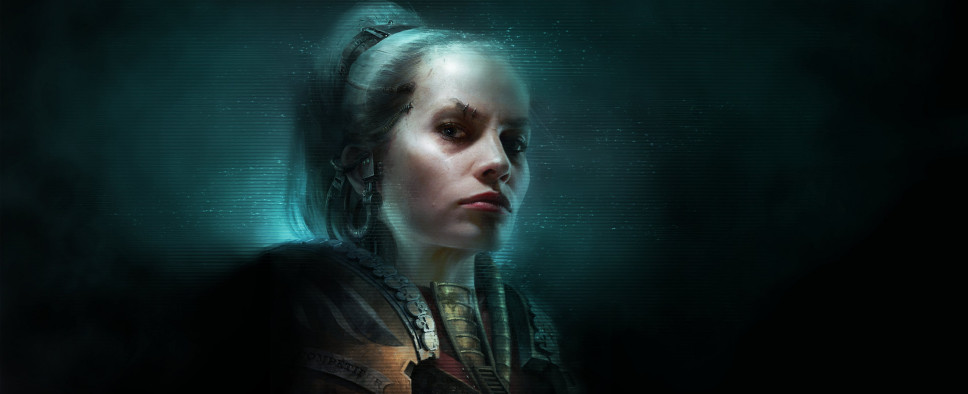Warhammer 40,000: Inquisitor - Martyr Review
-
Category: ReviewsHits: 13313

Article Index
Introduction
Warhammer 40,000: Inquisitor - Martyr is a hack 'n' slash action-RPG from NeocoreGames, the creators of The Incredible Adventures of Van Helsing series. As you may have guessed, it uses Games Workshop's futuristic Warhammer 40K setting that in theory should lend itself pretty well to a game about hacking, slashing, and shooting your way to loot and glory.
With hack 'n' slash games usually favoring fantasy settings, the developers saw 40K's grimdark sci-fi aesthetic as an opportunity to experiment with some of the genre's established mechanics and add thematically-appropriate things like a proper cover system, hulking vehicles, and more prominent and varied ranged weaponry.
The big question here is whether this experimentation resulted in an enjoyable game that manages to capture the uncompromising and gritty spirit of 40K. Having spent roughly thirty hours with Martyr, I've assembled my thoughts on that below. So, with the Emperor's blessing, let's proceed.
Systems and Gameplay
The game starts with you creating your own personal Inquisitor by choosing their background. You can be a Psyker, a Crusader, or an Assassin. These backgrounds act as the game's classes with their own attributes, skill trees, and unique combat resources, offering three fairly distinct ways of playing the game. Furthermore, each class has three sub-classes of sorts that determine your starting equipment, perks, and unlocked skill trees.
As you progress through the game, you start realizing that the NeocoreGames team took the kitchen sink approach to game design on this one. The amount of interconnected systems and different kinds of progression in Martyr is overwhelming. I'm exaggerating of course, but it is as if the developers just threw mechanics at the wall to see what would stick, but they all did.
Your Inquisitor has a rank, which is essentially their character level. As your rank goes up, you get access to additional passive skills, perks, and equipment. There are 18 skill trees per character, each with a dozen or few dozen skills that make your Inquisitor better at some specific thing like using ranged weapons or single-target attacks. You start with several of them unlocked and get the rest by performing Heroic Deeds.
Heroic Deeds are like achievements of-sorts that grant you attribute points and unlock new skill trees and perks. Perks act as these tree-less passive skills with somewhat unique effects, while attributes give you additional passive bonuses aimed at making your Inquisitor generally stronger.
You also have power rating to keep in mind. It tallies up your relative equipment power and then compares it against any mission's difficulty rating. If your power rating is higher than the mission's difficulty, you do more damage and take less and vice versa.
As you complete missions you get experience, credits, Fate points, Glory points, and, I kid you not, a lootbox filled with randomized level-appropriate equipment. And if you keep doing missions in a particular star system of the game's Caligari Sector, your influence there rises and you get some rewards for that as well.
At the risk of having you lose your minds and succumb to the corrupting taint of the Warp, Glory points mark your weekly progress, giving you some goodies once a week depending on how much Glory you've earned, while Fate is used primarily in crafting (yes, there's an intricate crafting system with its own tech tree) and for the so-called Tarot missions that introduce a very minor, but nonetheless present, CCG element to the Martyr formula. These Tarot missions allow you to construct a challenging mission by assembling a set of cards that determine the mission's type, side challenges and rewards.
With how needlessly convoluted and superfluous it all is, at this point I may as well cover my walls with notes and newspaper clippings and connect them with a web of red string that spells “WHY NEOCOREGAMES?” if you tilt your head and squint hard enough. Especially, considering that this is me just giving you the big picture and skipping some of the less prominent features like morality, priority assignments, and system protectors.
But you know the worst part about all that? None of it really matters. Take Heroic Deeds for example. Instead of offering fun challenges or handicaps and making your regular grind more varied and exciting, they usually just boil down to killing a certain number of foes or healing a certain amount of damage. Most of them get auto-completed as you go through the game normally and as such have very little reason to exist. Same goes for the lootboxes. Why do they need to exist when the game's monsters drop loot already?
Then, you may be thinking that 18 skill trees sounds neat. It does. Until you realize that these passives usually give you such mind-blowing bonuses like +1% crit chance or +1.5% damage, while the major keystones go all out and give you something extremely cool. Like +1% life leech on crit or a stacking 5% damage bonus. Amazing.
Oh, and if you think that maybe the developers have some plans to reign things in with future updates, already your character screen has the yet unavailable Warzone levels tab that will soon offer you a new form of progression and the ability to earn endless levels after you reach your normal level cap of 50.

